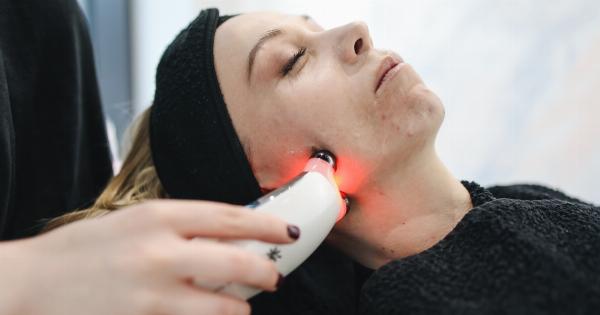Hemorrhoids are a common condition that affects millions of people worldwide. They occur when the veins in the anus or lower rectum become swollen and inflamed.
While hemorrhoids can be uncomfortable and irritating, they are usually not serious and can be treated with simple home remedies or medical interventions. However, certain factors can increase the risk of developing hemorrhoids. In this article, we will explore these factors in detail.
Age
Age is a major risk factor for hemorrhoids, as the tissues that support the veins in the anus and rectum tend to weaken over time. As we age, the muscles in the pelvic floor also weaken, leading to increased pressure on the veins in the anal area.
This can result in the development of hemorrhoids, especially in individuals over the age of 50.
Pregnancy
Pregnancy is another common risk factor for hemorrhoids, as the weight of the growing uterus puts pressure on the veins in the lower rectum and anus.
Additionally, hormonal changes during pregnancy can cause the veins to become more relaxed and prone to swelling, which can lead to hemorrhoids. Hemorrhoids that develop during pregnancy usually improve after delivery, but they can be uncomfortable in the meantime.
Chronic Constipation or Diarrhea
Chronic constipation or diarrhea can also increase the risk of developing hemorrhoids. Straining during bowel movements can put additional pressure on the veins in the anal area and cause them to become swollen and inflamed.
In addition, chronic diarrhea can irritate the skin around the anus and cause itching and discomfort, which can lead to the development of hemorrhoids.
Sitting for Long Periods of Time
Sitting for long periods of time, especially on hard surfaces, can put pressure on the veins in the anal area and increase the risk of hemorrhoids.
This is because sitting compresses the veins and reduces blood flow, which can cause them to become swollen and inflamed. Individuals who sit for long hours at work or during travel should take frequent breaks and move around to reduce the risk of hemorrhoids.
Lack of Exercise
Lack of exercise is another risk factor for hemorrhoids, as physical activity helps to improve blood flow and prevent constipation.
Leading a sedentary lifestyle can lead to weakened muscles and poor circulation, which can increase the risk of developing hemorrhoids. Combining regular exercise with a healthy diet that is high in fiber can help to prevent constipation and reduce the risk of hemorrhoids.
Obesity
Obesity is a risk factor for many health problems, including hemorrhoids. Being overweight or obese can put additional pressure on the veins in the anal area, causing them to become swollen and inflamed.
Losing weight through a combination of diet and exercise can reduce the risk of hemorrhoids and improve overall health.
Family History
Family history can also play a role in the development of hemorrhoids. If one or both parents have had hemorrhoids, there is a greater likelihood that their children will develop them as well.
While family history cannot be changed, individuals who are at higher risk for hemorrhoids can take steps to reduce their risk by adopting a healthy lifestyle.
Anal Intercourse
Anal intercourse can increase the risk of hemorrhoids, as it can cause the tissues in the anus and rectum to become stretched and damaged. This can lead to inflammation and swelling of the veins in the anal area, which can cause hemorrhoids to develop.
Individuals who engage in anal intercourse should use condoms to prevent the transmission of sexually transmitted infections, which can also increase the risk of hemorrhoids.
Chronic Coughing or Sneezing
Chronic coughing or sneezing can also increase the risk of hemorrhoids. This is because the force of coughing or sneezing can put pressure on the veins in the anal area and cause them to become swollen and inflamed.
Individuals who suffer from chronic coughing or sneezing should speak with their healthcare provider about managing their symptoms to reduce the risk of hemorrhoids.
Genetics
Genetics can also play a role in the development of hemorrhoids. Some individuals may have a genetic predisposition to weakened veins or circulatory problems, which can increase the risk of developing hemorrhoids.
While genetics cannot be changed, individuals who are at higher risk for hemorrhoids can take steps to reduce their risk by adopting a healthy lifestyle.
Conclusion
Hemorrhoids are a common condition that can be uncomfortable and irritating, but they are usually not serious and can be treated with simple home remedies or medical interventions.
Certain factors, such as aging, pregnancy, chronic constipation or diarrhea, sitting for long periods of time, lack of exercise, obesity, family history, anal intercourse, chronic coughing or sneezing, and genetics, can increase the risk of developing hemorrhoids.
Individuals who are at higher risk for hemorrhoids should take steps to reduce their risk by adopting a healthy lifestyle, such as exercising regularly, maintaining a healthy weight, eating a diet that is high in fiber, and managing any chronic conditions that may increase the risk of hemorrhoids.




























